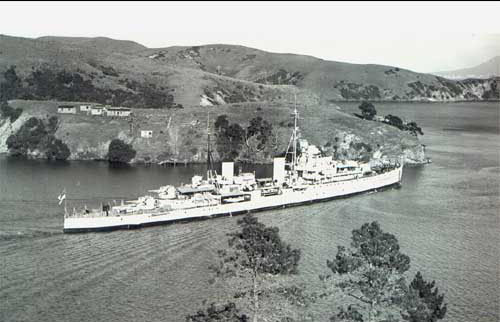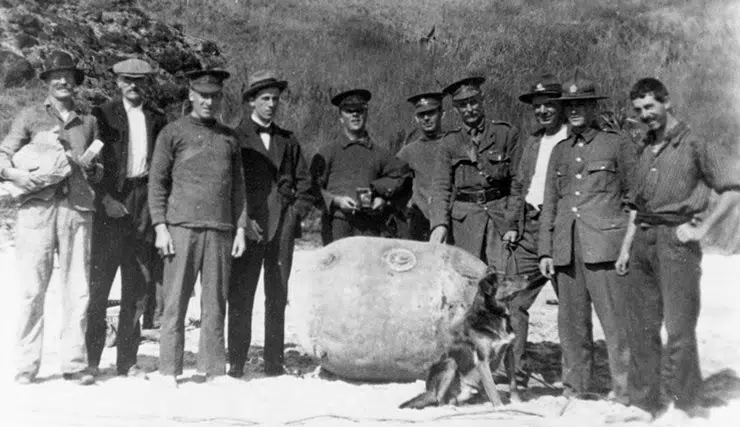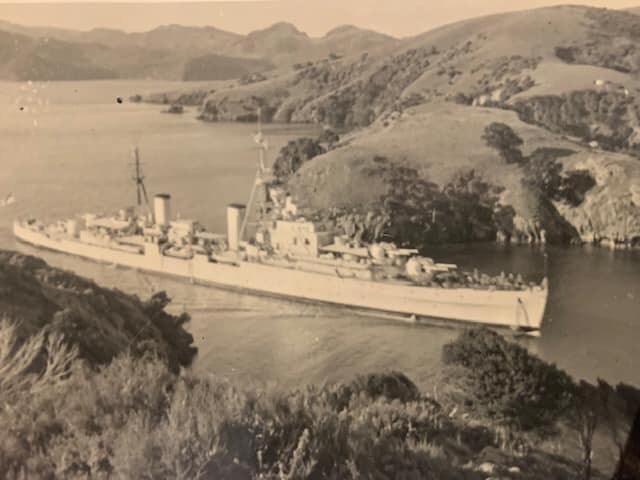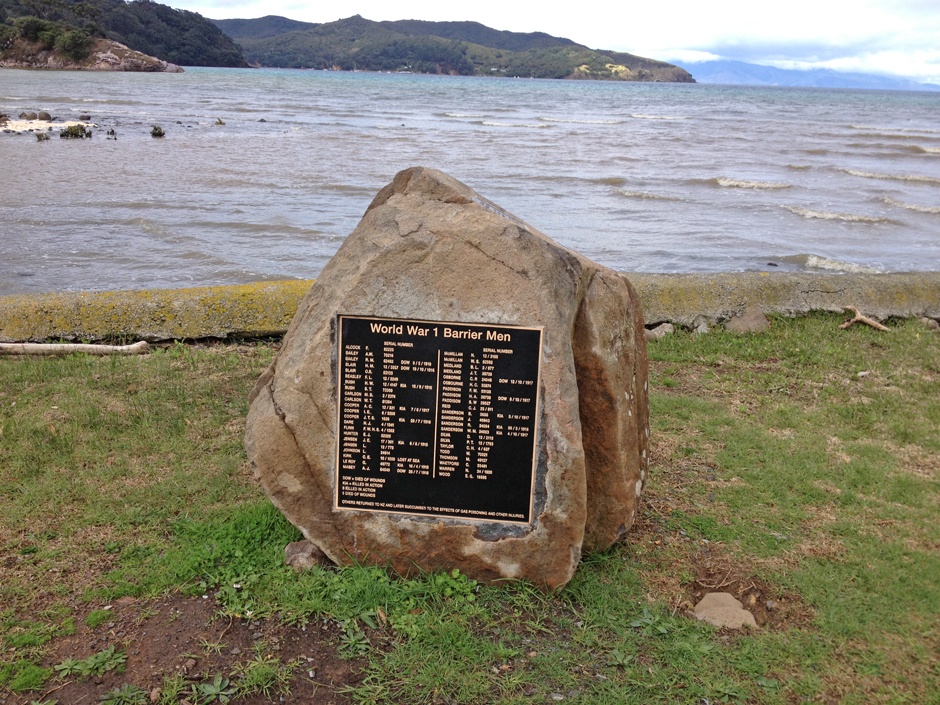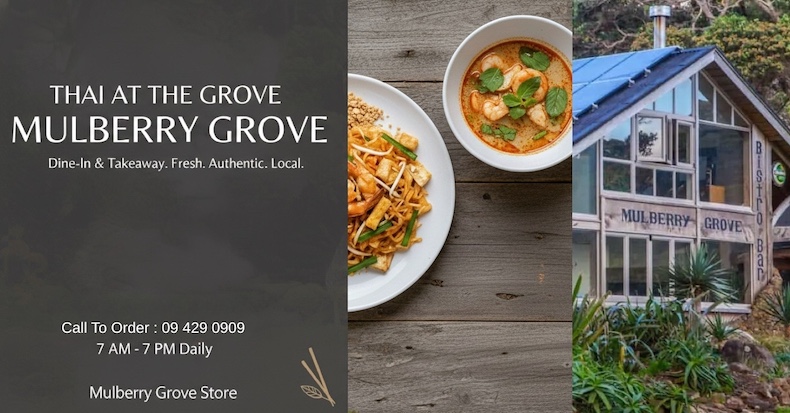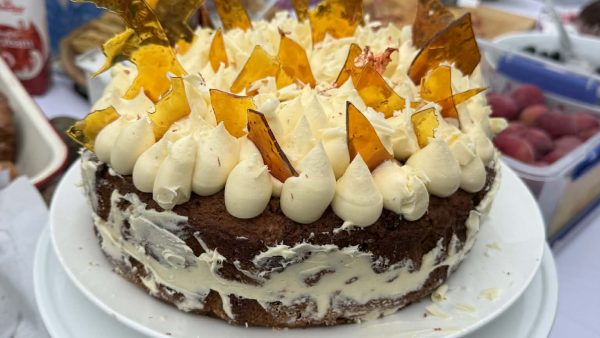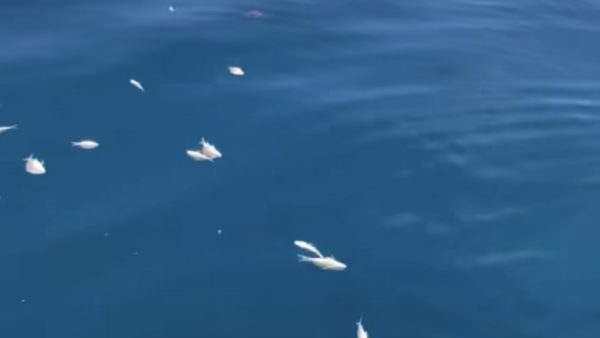Rock of Remembrance: Great Barrier’s WWI Legacy at Tryphena. Photo / NZ History
As the morning sun casts its glow over Tryphena, we’ll prepare for ANZAC Day commemorations, a tradition deeply rooted in the heart and history of the island. At 12 noon, Tryphena Hall will be the gathering place to honour the heroes who served during the World Wars, with a special focus on the brave individuals who never returned home.
Great Barrier Island, with its strategic position guarding the Hauraki Gulf’s bustling shipping lanes, became a vital defense point during both World Wars. The island was the first line of defense for Auckland against Japanese and German vessels.
The impact of war was significant, with many men taken from the island to fight. Women stepped into roles traditionally held by men while also living with the risk of enemy action. The First World War saw 44 men from Great Barrier Island enlist, and 13 made the ultimate sacrifice—a stark reminder that one in four did not return.
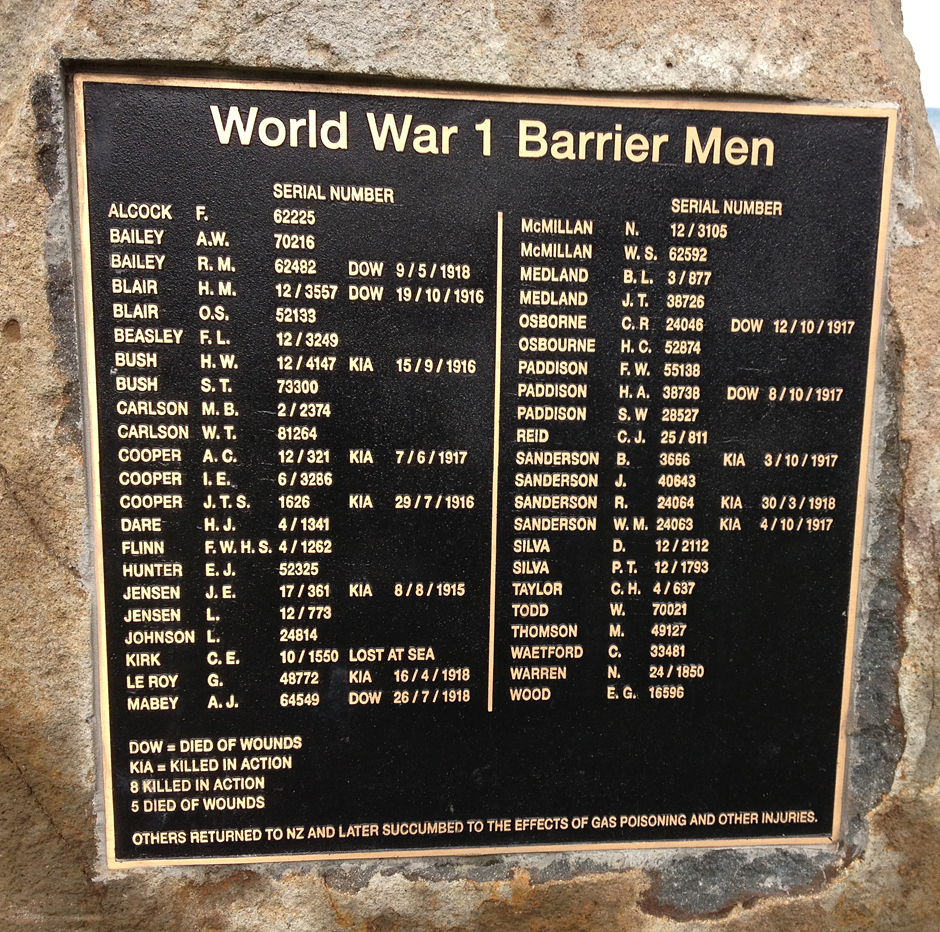
Their sacrifice is commemorated with the rock and plaque in Tryphena. Among the names listed, the Mabeys, Medlands, and Sandersons hold a special place of honor. These original settler families fought to tame the island’s rugged and often unrewarding terrain, and their descendants remain integral to the island community today.
During World War II, the island’s defenses increased significantly with howitzer placements, an infantry battalion, and the formation of a Home Guard unit for local defense.
The Claris Airfield and the Moors Peak Radar Station became crucial wartime installations, transforming Great Barrier Island into a formidable wartime outpost. The Controlled Mining Station at Bradshaw Cove on Kaikoura island is another reminder of the island’s military past.
As we pay our respects this ANZAC Day, we do more than remember; we acknowledge a heritage that continues to shape life on Great Barrier Island. It’s a history of courage, community, and continuity that is felt when visiting the memorial rock at Tryphena or the historic homesteads and museums.
To the Mabeys, Medlands, Sandersons, and all who have contributed to this legacy, we stand in gratitude. Lest we forget.
Editor’s Note: If you have knowledge of specific wartime events, people, or places on Great Barrier Island, please consider sharing them in the comments. These personal narratives are invaluable in preserving the island’s wartime legacy.


